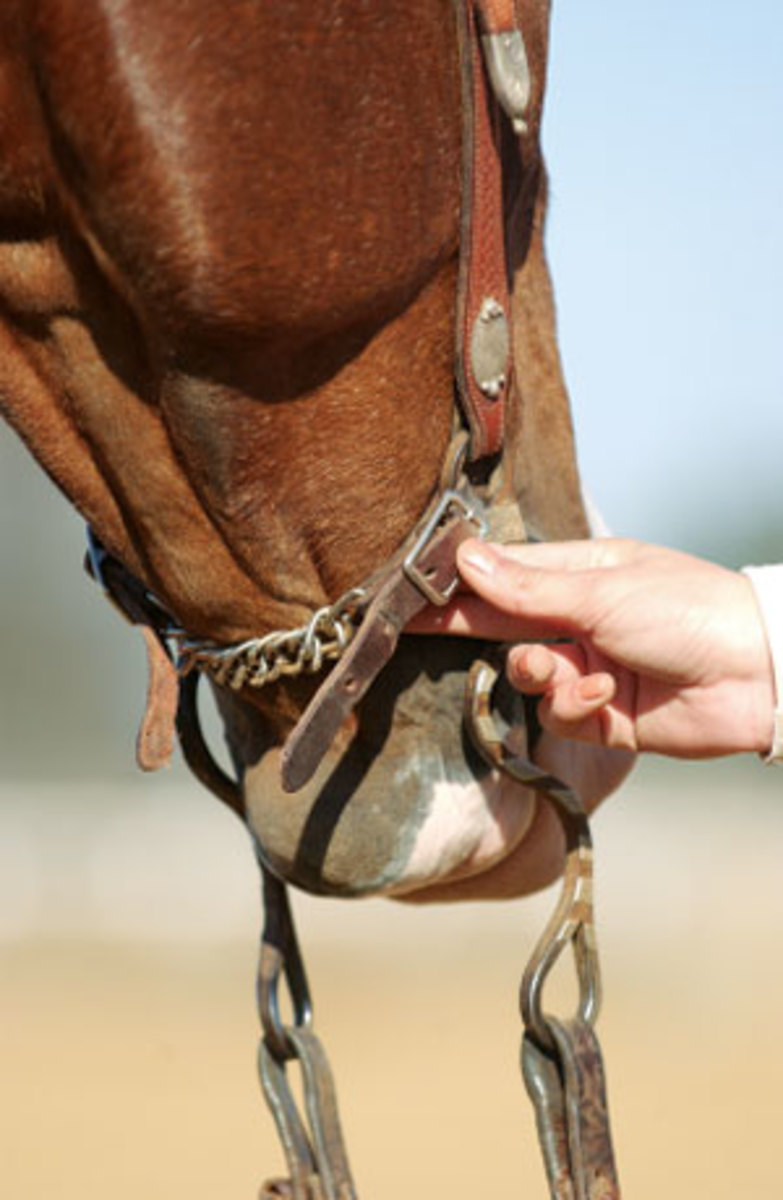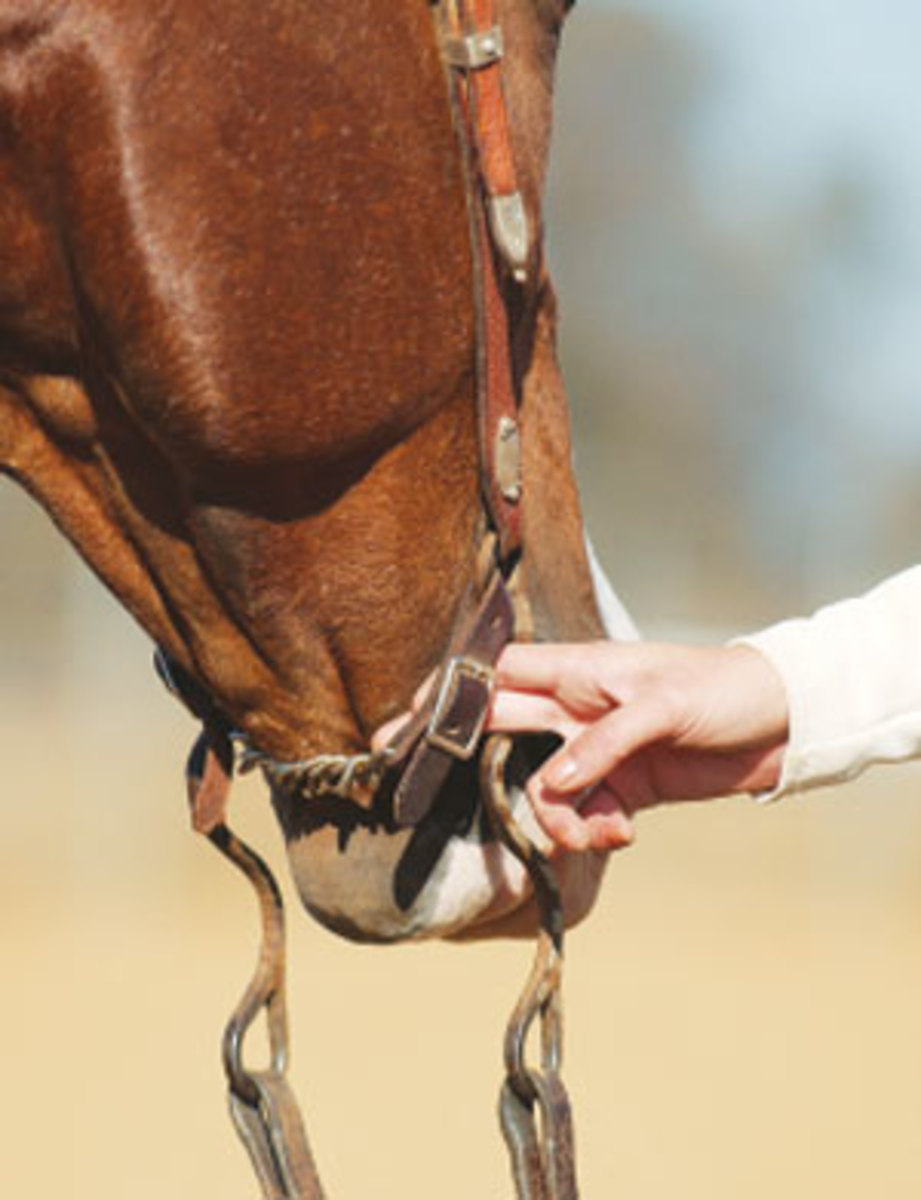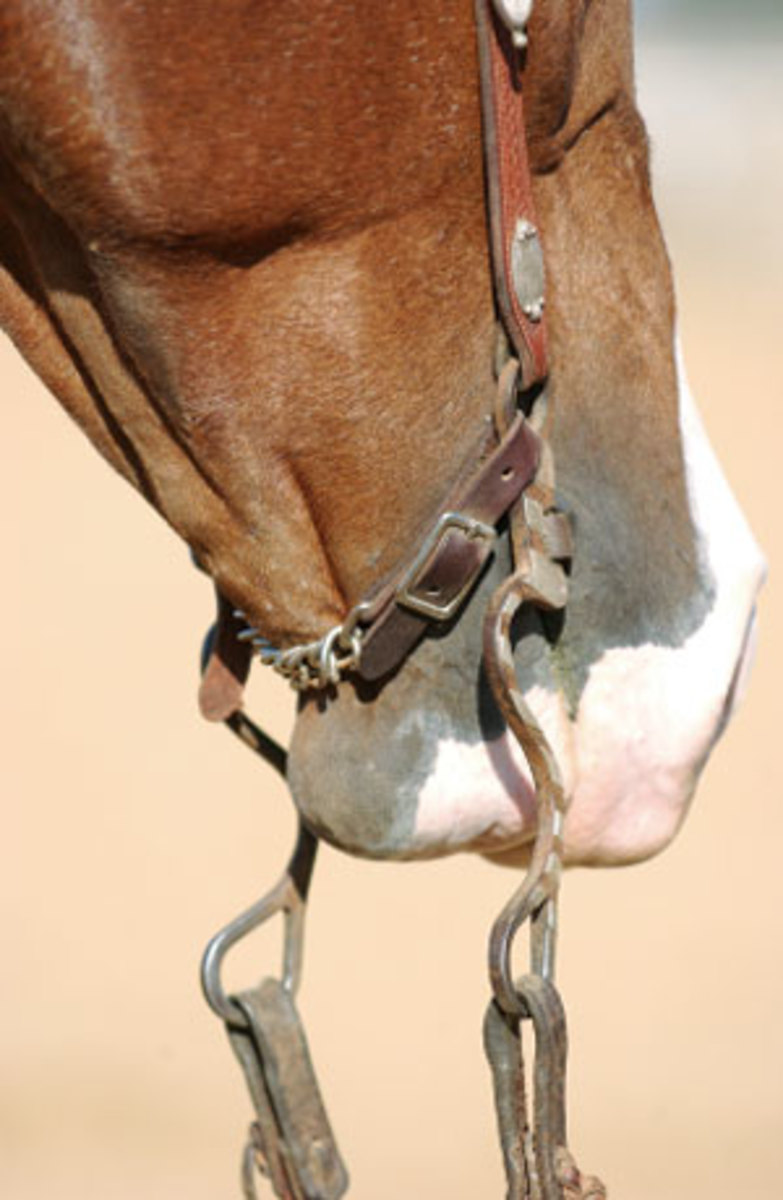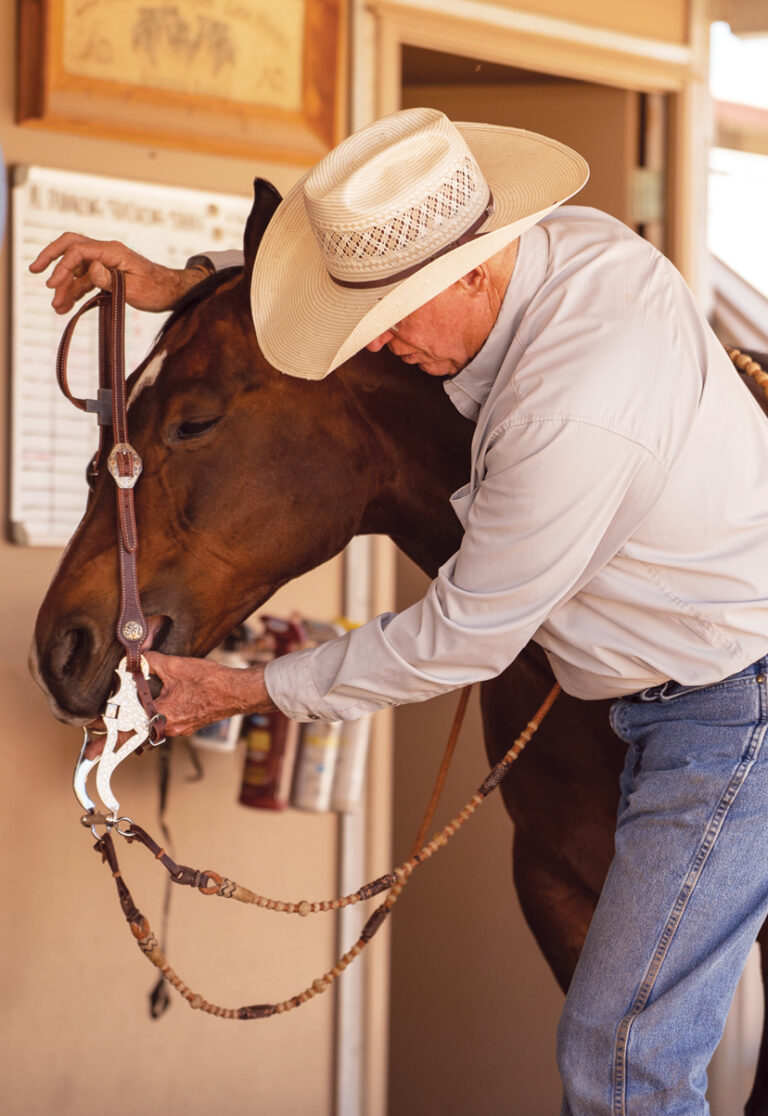Your horse’s chin is sensitive, and because of this, a curb chain or curb strap can be an effective training tool. But this also means you need to be careful that the strap you choose is right for your horse, and that you adjust it correctly and evenly.
First, picture how a curb strap works in partnership with your horse’s bit. Besides helping keep the bit in place, it provides another contact point when your horse is bridled. When there’s no rein pressure pulling back on the shanks of the bit, the curb strap should be quiet and neutral. As you take up on the reins, the backward motion of the shanks puts the curb strap into play by applying pressure along the sensitive area called the “chin groove”—the part of the jaw just behind the bulge of the chin. At the same time, it provides leverage for the bit’s mouthpiece.

When the curb strap comes into play depends on how you have it adjusted. If it’s too tight, instant pressure will be applied as you lift the reins, and your horse won’t be able to get relief from the constant pressure of the bit against his tongue. Riders often adjust the curb strap so it takes action after the shanks have drawn back about 45 degrees.
A number of different types of curb straps are available, and the type you choose depends on your skill level and your horse’s needs. As with bits, a curb strap’s severity is really about the skill of the rider’s hands, and the wrong one can be extremely severe in the wrong hands.
While you can find curb straps ranging from knotted leather to jointed metal, the most common are either chains, or harness leather straps. A curb chain has a little more bite to it than a leather curb strap. The width of the chain, and the size and spacing of its links, determine its severity.

I tend to use a curb chain if a horse feels dull and heavy in the bridle—it encourages a softer, lighter response and helps teach my horses to give in the bridle. I like to go to my horse’s chin with a little pressure, rather than using a heavier bit. On most of my horses, I use a flat chain, with multiple crossovers in the links to prevent them from pinching the skin along the chin. If I need a little less pressure, I’ll go with a harness leather curb strap with a buckle on each side for adjustment.
Learn More: Curb Strap Adjustment Tips
To adjust your horse’s curb strap, check to see that you can fit two fingers between the strap and your horse’s jaw, and make sure it’s adjusted evenly on both sides. If you’re using a curb chain, make sure it’s not twisted and check to see that it lies flat against the horse’s jaw. Compare the straps fit in the photo on page 32 to the photos on this page to see the difference between a curb strap that’s adjusted too tightly, and those that fit correctly.

Bobbie Emmons develops top AQHA and APHA contenders from Bobbie Emmons Show Horses in Plymouth, California. She’s trained more than 50 youth, amateur, and open APHA world champions and reserve world champions.




